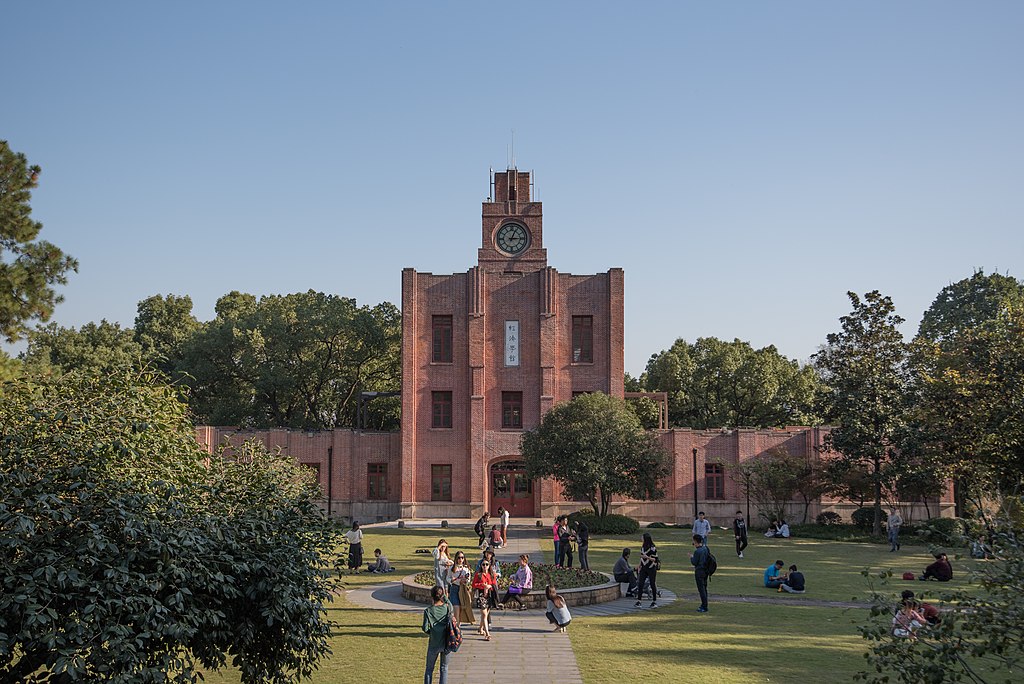
In 2022, China will host the capstone event of The World Academy of Sciences (UNESCO-TWAS) for the fourth time. The event will be the latest highlight in a long-standing partnership between the Academy and Chinese institutions that have been on the forefront of science and scientific development worldwide.
The TWAS 16th General Conference, which takes place every two years and brings together scientific leaders of the global South, will convene from 21–24 November. Normally an in-person event, this is the second year the gathering will happen almost entirely online to account for the ongoing COVID-19 pandemic.
China hosted TWAS gatherings in 1987, 2003 and 2012, when the momentous event was known as the TWAS General Meeting. This year, the TWAS General Conference is being organized in collaboration with Zhejiang University, based in Hangzhou – which is one of China’s oldest universities and will host the event’s virtual platform as well as some in-person events on the final day – and the Chinese Academy of Sciences (CAS) and the China Association for Science and Technology (CAST). The 2022 Conference theme will be “Basic Sciences for Evidence-based Decision-making and Sustainable Development in the Global South”.

The Conference will include high-level lectures and panels, symposia, inductions of new TWAS Fellows and TWAS Young Affiliates, and presentations of some of the most prestigious awards specific to science in the developing world. It will also draw an international audience of researchers and policy experts from both developing and developed regions.
“The strides China has made in scientific development in recent decades is truly astounding, and an achievement that can serve as an inspiration for other nations in the global South,” said TWAS Executive Director Romain Murenzi.
“So it is our enormous pleasure to work once again with our Chinese partners to bring the collective scientific ‘intelligence’ of the developing world together once again.”
"Basic sciences are the transformative force for addressing the complex problems that we face today and tomorrow,” said Wu Zhaohui, the President of Zhejiang University.
“It’s a great privilege for ZJU to host the TWAS 16th General Conference and promote dialogue with scientists, government representatives and other stakeholders from around the world on this important theme. I firmly believe that the Conference will further enhance collaboration between China and TWAS to foster the development of basic sciences and achieve SDGs in the global South."
"Since the 1980s, China and TWAS have enjoyed a long-term partnership featuring a shared mission to promote the development of science and technology in the developing world,” said Xilin Chen, the Director General of the Bureau of International Cooperation for the Chinese Academy of Sciences.
“Cooperative achievements have been made by both sides through capacity building, personal exchange, joint research, etc. A growing number of Chinese TWAS fellows also witness the heavy involvement of the Chinese scientific community in TWAS. We hope the upcoming TWAS 16th General Conference will landmark a new era of the China-TWAS partnership, particularly on advancing basic sciences for sustainable development."
"We admire TWAS’s persistent efforts toward the UN Sustainable Development Goals, especially by calling attention to basic research via its 16th General Conference,” said Yuzhuo Zhang, the Secretary-General and the Vice President of CAST.
“The China Association for Science and Technology shares the same view and will spare no efforts, to achieve SDGs, in working toward a scientific community worldwide, featuring openness, trust and cooperation."
A record of collaboration
TWAS has a long history of successful collaboration with CAS in particular, joining together to establish an array of successful programmes and initiatives. Bai Chunli, who served as President of CAS from 2011–2020, was simultaneously TWAS President from 2013–2018, further cementing the bond between the two academies. CAS has also hosted the TWAS East and South-East Asia and the Pacific Regional Partner (TWAS-SAPREP) since its inception in the Academy’s earliest years.
Together, the two academies also collaborated to open six CAS-TWAS Centres of Excellence in Beijing, China—learning centres for young scientists from developing countries. Each centre focuses on six different scientific disciplines: climate, water, space technology for disaster mitigation, green technology, biotechnology, and emerging infectious diseases.
In 2004, TWAS and CAS launched a programme that included PhD, postdoctoral and visiting scholar fellowships at CAS institutes in China. That programme was renewed twice after, and became known as the CAS-TWAS President’s Fellowship Programme. As of 2022, this programme awarded 1281 PhD fellowships to researchers in 75 countries and already allowed more than 700 developing world scientists to achieve their PhDs, while many of the remaining awardees are still pursuing them. Furthermore, this progamme made it possible to publish more than 1,400 scientific papers since 2013.
In 2020, the two academies worked together to form the CAS-TWAS Network for Sustainable Development, aiming to develop stronger links between CAS, TWAS, universities, scientific institutions, and governments, to provide a platform for international cooperation in achieving the UN Sustainable Development Goals (SDGs).
Additionally, in April 2022, TWAS and CAS signed another memorandum alongside the Alliance of International Science Organizations (ANSO) to begin a five-year programme to support 40 PhD students per year. This will allow them to study and conduct research in the CAS-affiliated University of Science and Technology of China (USTC), or the University of Chinese Academy of Sciences (UCAS)—which includes CAS institutes—and receive vital scientific training before returning to their home countries.
The academies also worked together on world-renowned awards to recognise excellence in science. In 2013 they launched the TWAS-Lenovo Science Award, which is among the most prestigious awards specifically for developing world scientists, and in 2020 they founded the TWAS-CAS Young Scientists Award for Frontier Science, which recognizes scientific achievements by young scientists living and working in developing countries, and is currently in its third edition. The award ceremonies of both prizes will take place during the upcoming Conference.
Sean Treacy

